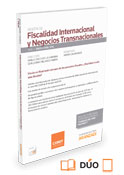
On May 22, 2025, the US House of Representatives passed a bill with amendments to the Internal Revenue Code (“IRC”) which includes the proposed Section 899. The bill is introduced as part of the “Defending American Jobs and Investment Act” (H.R. 591) and incorporated into the House Ways and Means Committee’s tax package titled “The One, Big, Beautiful Bill” (“the Bill”). The aim is to impose penalizing tax measures against foreign countries believed to levy discriminatory and/or extraterritorial taxes. This specific proposed section is entitled “Enforcement of Remedies Against Unfair Foreign Taxes” and it represents a significant new international tax enforcement measure.
Chairman Smith shows his resilience and stubbornness by proposing this same Section 899 earlier this year, in January 2025. Also, back in 2023 he introduced a very similar bill with the same purposes. Finally, his efforts paid off! Now we have a new proposed wording. A structural change in section 899 had seen the light where the original language to issue periodic reports listing jurisdictions with offending measures has been removed with respect to the Under Taxed Profits Rule (“UTPRs”), Digital Service Tax (“DSTs”), and the Diverted Profits
Taxe (“DPT”). These taxes are now collectively referred to “Unfair Foreign Tax”. Rember the word “unfair”!
The new wording of the proposed Section 899 targets corporations, individuals, and governments based in countries that impose discriminatory and/or extraterritorial taxes on US persons, including corporations by subjecting them to increased US tax rates. Specifically, it would increase the US tax rates imposed on “applicable persons,” that is, persons who are tax residents in, or are controlled by a tax resident in, a “discriminatory foreign country.”
As I am going through analysing the proposed Section 899, I started questioning the own fairness of such a Bill and such a legal wording. It would be best to start with some important definitions, so we could grasp the mechanism of this new section.
Applicable Persons:
- Any government of any discriminatory foreign country;
- Any individual who is a tax resident of a discriminatory foreign country (other than a US citizen or resident);
- Any foreign corporation, other than a US-owned foreign corporation, that is a tax resident of a discriminatory foreign country;
- Any private foundation created or organized in a discriminatory foreign country;
- Any foreign corporation, other than a publicly held corporation, if more than 50% owned of the total votes or total value, directly or indirectly, by applicable persons;
- Any trust where the majority of the beneficial interests are held (directly or indirectly) by applicable persons; and
- Any foreign partnerships, branches, or entities identified by the Secretary with respect to a discriminatory foreign country.
Discriminatory Foreign Country: any foreign country which has one or more unfair foreign taxes.
Unfair Foreign Tax: undertaxed profits rule (UTPR), digital services tax, diverted profits tax, and, to the extent provided by the Secretary, an extraterritorial tax, discriminatory tax, or any other tax enacted with a public or stated purpose indicating the tax will be economically borne, directly or indirectly, disproportionately by United States persons.
However, it does not include taxes that do not apply to any US person or to any foreign corporation that is considered to be a controlled foreign corporation with more than 50% owned by US persons. With this definition, countries that adopted a UTPR as part of their Pillar 2 legislation and/or impose DST would automatically be considered discriminatory foreign countries.
Extraterritorial Tax: any tax imposed by a foreign country on a corporation (including any trade or business of such corporation) which is determined by reference to any income or profits received by any person (including any trade or business of any person) by reason of such person being connected to such corporation through any chain of ownership, determined without regard to the ownership interests of any individual, and other than by reason of such corporation having a direct or indirect ownership interest in such person.
Discriminatory Tax: tax imposed by a foreign country that:
- applies more than incidentally to income that would not be considered sourced within, or effectively connected with a trade or business in, the foreign country applying the relevant US tax rules;
- is imposed on a base other than net income and does not permit recovery of costs and expenses;
- is exclusively or predominantly applicable to non-residents; or
- is not treated as an income tax under the tax laws of such foreign country or is otherwise treated by the foreign country as being outside the scope of double tax treaties.
Section 899 impacts tremendously tax treaties and the international tax environment as it overrides the application of tax treaties rates, where rate increases would be between 5% and 20%.
So, if a tax rate applies to a non-resident under the current legislation based on a tax treaty, said reduced rate would serve as the starting point. Hypothetically, if a any type of payment from a US corporation to a foreign affiliate is subject to a reduced withholding tax under a treaty, the applicable rate under Section 899 would begin at 5% in the first year, increasing incrementally thereafter till it reaches 20%.
I think, by applying increased rates on top of treaty-based rates, the US administration is wiping off severely and significantly its historical treaty commitments and obligations.
Furthermore, it seeks to modify the current rules under the Base Erosion and Anti-Abuse Tax (“BEAT”). For example, currently, US corporations with annual gross receipts of at least $500 million that make deductible payments to “foreign-related” parties are subject to the minimum tax rule of 10%. The proposed Section 899 expands the scope of entities subject to BEAT ton include as well certain US subsidiaries of non-US-parented groups, it increases the applicable rate to 12.5% for such entities, the benefits rising from certain credits for such entities are reduce or disallowed, and it expand the taxable base to include other certain payments that are currently included.
This proposed provision also suggests increasing tax rates that apply to various categories of income:
Income that is not effectively connected to a US business:
To the extent that the income is not “effectively connected income” (“ECI”), non-resident individuals and foreign corporations are taxed at 30% on fixed or determinable annual or periodic income (“FDAP”).
Effectively connected income:
Non-resident individuals are taxed at the graduated rates on their ECI. The increased rates will only apply to Foreign Investment in Real Property Tax Act (“FIRPTA”) gains. Foreign corporations are taxed at a rate of 21% on their ECI.
Branch Profits:
ECI deemed repatriated by a US branch of a foreign corporation (i.e., “dividend equivalent amounts”) would be subject to branch profits tax at a rate of 30%.
Gross Investment Income:
When foreign private foundations receive an income from a US source considered to be interests, dividends, rents, payments with respect to securities loans, and royalties, but not including any unrelated business taxable income (“UBTI”) it would be subject to toa rate.
The US administration had needlessly and pointlessly run over decades and decades of trade treaties, in the tax sphere. This bill will need to be passed by the US Senate and signed by President Trump before it takes effect. Significant changes may be made during the Senate review process.
If I return to how Section 899 is entitled, it demonstrates the ideology of the current US administration, the key words are “remedies” and “unfair foreign taxes”. Remedy to what? Why unfair? Unfair to whom? What does unfair mean? What is fair and what is not? One can ask. The answers are opened debates about virtues and values that would vary based on time and space. In ancient Greece, we referred to fairness as “Επιείκεια” (Epieikeia) which according to Aristotle is a form of justice that corrects and complements the law when it is too rigid. In his ethics, fairness is the virtue of the strong or those in authority, meant to temper strict adherence to rules with moderation and compassion.
Let us think… is the US administration being fair?
The opinion expressed in this article is exclusively that of the author and does not reflect and cannot be related to her professional environment.



